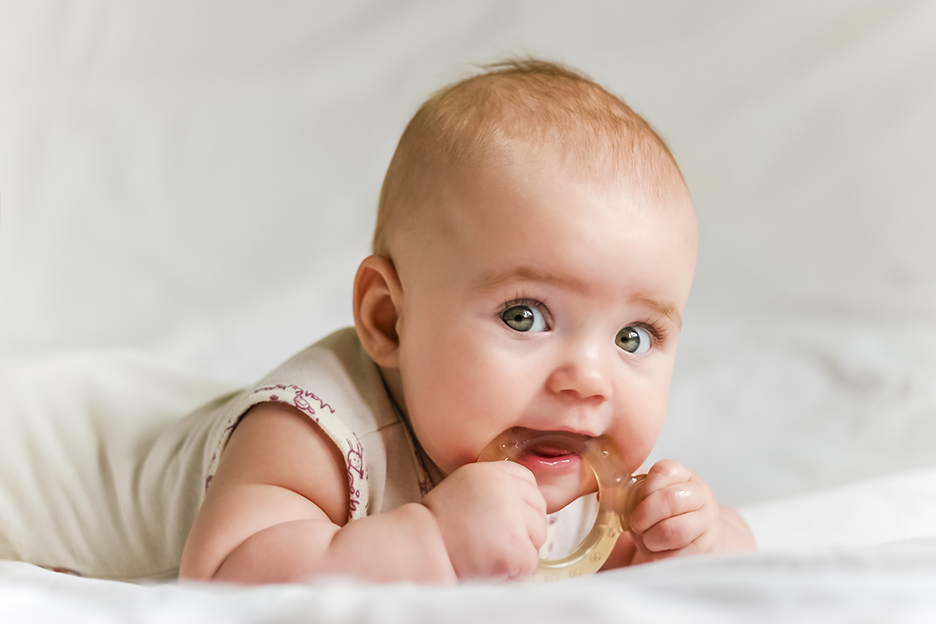Is your baby teething? Ouch! Most babies will experience some form of pain or discomfort at this time. Here’s how you can help your baby feel better.

1
Gently massage his gums
During the teething process, your child’s gums can become inflamed and sensitive. You can ease his pain by gently rubbing his swollen gums with your finger—remember to always wash your hands first! You can also gently massage his gums with a clean baby toothbrush with very soft bristles.
2
Give him something to chew on
Give your baby a clean, cool, wet facecloth to chew on. It’s a great way to get him to gently auto-massage his gums. You can also give him a refrigerated teething ring (choose a solid teething toy made by a reputable company that respects safety standards). Designed specifically for teething, they provide a great gum massage! The cold is also a natural anaesthetic that will numb the pain. Never place a teething ring in the freezer as the extreme cold could “burn” your baby’s gums. In any case, keep your child under constant supervision to ensure his safety.
3
Consult your pharmacist
If the pain persists and your baby is suffering, your pharmacist can recommend an over-the-counter pain reliever and advise you on the right dosage calculated according to your baby’s weight. Never give acetylsalicylic acid (aspirin) to a baby.
4
Shower him with attention
A little extra soothing can sometimes ease the pain. Spend more time with your child. Hug him, hold him and play with him to both comfort him and distract him from the pain.
Avoid
- Topical teething gels. They are dangerous as they can increase the risk of choking. When swallowed, these gels can numb the throat, making swallowing difficult. They can also affect digestion.
- Teething biscuits. These are not recommended, as they are often high in sugar and can cause cavities.
- Hazelwood necklaces. Medical authorities discourage their use as they pose suffocation and strangulation risks for babies.
- Raw vegetables. Pieces of hard, raw vegetables (celery, carrots, etc.) are choking hazards and should not be given to children under two years old.
Signs that your baby is teething
- He drools more than usual;
- He tends to bite or chew everything;
- His cheeks are red;
- His gums are red and swollen;
- He is irritable;
- He cries often;
- His appetite has decreased;
- He’s a little feverish.
Talk to your pharmacist to find out more about teething and for some great advice on how to make your baby feel better.
